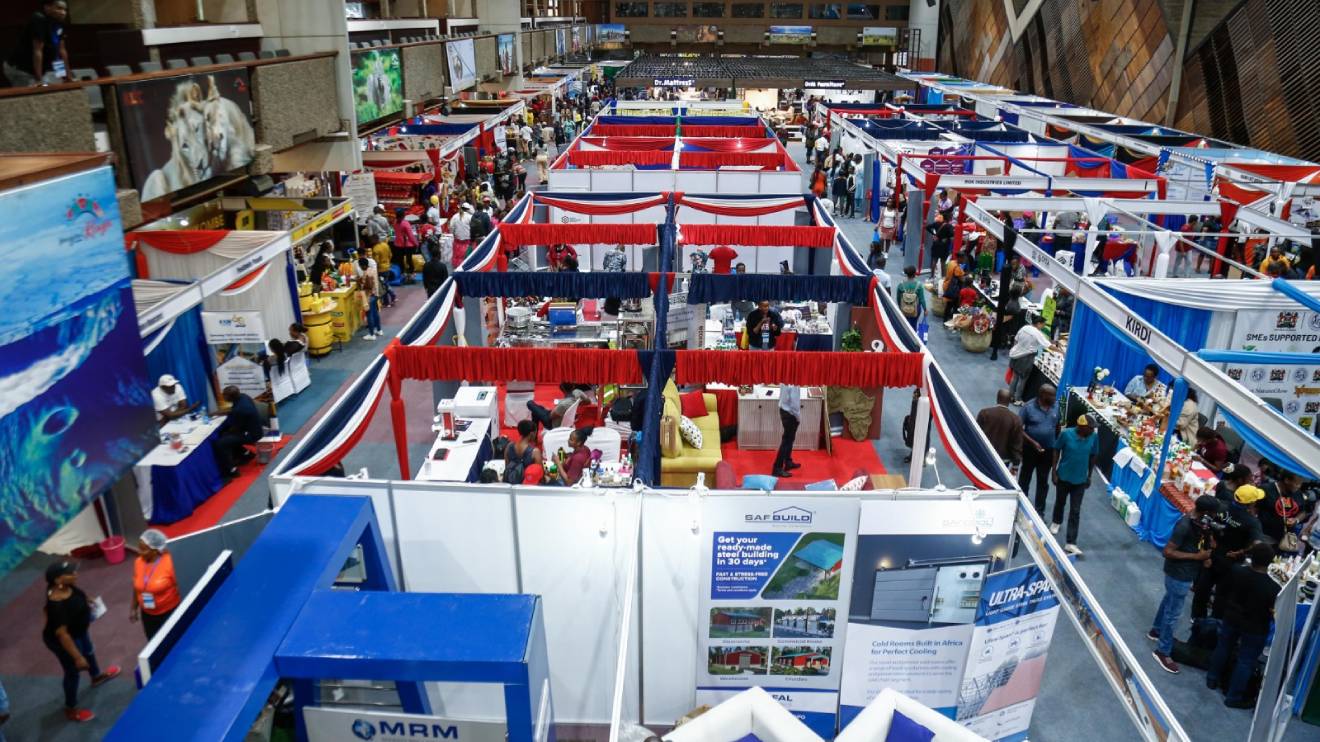The 7th Edition of the Changamka Kenya Shopping Festival wrapped up on Saturday at Nairobi's Kenyatta International Conference Centre (KICC), leaving an undeniable mark on Kenya’s economic landscape.
A vibrant blend of enterprise and innovation, the festival drew crowds of eager shoppers and industry leaders alike, eager to witness the ingenuity of Kenyan manufacturers as they showcased their latest offerings.
The five-day event was not only a marketplace but a celebration of Kenya’s manufacturing potential, standing as a testament to the Buy Kenya Build Kenya strategy that drives economic growth from within.
With over 200 exhibitors participating—half of whom were small and medium enterprises (SMEs)—the festival highlighted a colourful array of Kenyan-made products, from essentials like rice, sugar, and maize flour to high-quality cosmetics, clothing, and furniture.
Walking through the stands, visitors encountered booths stocked with local products that echoed both tradition and modernity, a testament to the creativity, precision, and quality Kenyan manufacturers pour into their goods.
Read More
For those accustomed to imports, the festival was an eye-opener: here was proof that Kenyan products can compete on quality, affordability, and style.
Opening the festival, Investments, Trade and Industry CS Salim Mvurya Mgala lauded the strides made by the Kenyan manufacturing sector.
"The government’s focus on supporting local manufacturers has driven product innovation that meets international standards, helping expand market access and creating jobs across the country," Mvurya stated.
His remarks underscored the government’s vision of a more economically self-reliant Kenya, strengthened through sustainable local industries that not only serve the domestic market but increasingly, the world.
The festival's impact went beyond Kenya's borders, drawing in international partners and supporters. British High Commissioner Neil Wigan spoke on initiatives such as Manufacturing Africa and Sustainable Urban Economic Development, aimed at enhancing local business growth.
Through these programmes, he explained, Kenyan businesses are positioned to add more value to their goods before they reach foreign markets, creating better prospects for both manufacturers and the national economy.
Supporting partners included major players such as Stanbic Bank, the British High Commission through TradeMark Africa, Kenya Breweries Limited (KBL), AfreximBank, and the United Nations Industrial Development Organization, illustrating the high level of trust in Kenya’s growing economic ecosystem.
Over the years, the Kenya Association of Manufacturers (KAM) has remained at the forefront of dispelling myths that imports hold a monopoly on quality. Initiatives like the Changamka Festival challenge this misconception by creating a platform where Kenyan goods can shine.
The festival, organised by KAM in collaboration with the Ministry of Investments, Trade and Industry, plays a key role in reshaping attitudes towards locally manufactured products, reinforcing their reputation for quality and innovation.
According to KAM officials, the festival's purpose is to reveal to the Kenyan public that supporting homegrown industries isn’t just patriotic; it’s essential for economic sustainability.
Adding an element of competition, this year’s festival recognised exceptional exhibitors for their creativity and appeal to the public. Dr.Mattress and Alladin earned top honours, while Bidco, Mr. Berry's Zuri Sweets, and Booch secured third place.
These winners captivated audiences with unique displays that blended artistic presentation with popular demand, proving that Kenyan businesses can deliver style along with substance.
Shoppers were treated to an impressive range of products spanning food, beauty, and home goods.
Many attendees were surprised to discover high-quality perfumes and skincare products produced locally, challenging the narrative that international brands are inherently superior.
The SME section, brimming with creativity, offered handmade products and innovative designs, standing out as a vibrant reflection of Kenya’s entrepreneurial spirit. Even electric bikes made an appearance, signalling Kenya’s readiness to embrace eco-friendly alternatives.
As the event drew to a close, the festival left behind more than full shopping bags; it inspired a renewed belief in Kenya’s manufacturing potential.
The industrialisation conference accompanying the festival sparked discussions on leveraging technology, adopting sustainable practices, and cultivating partnerships that would fortify Kenya’s position on the global stage.
For visitors and participants alike, the Changamka Kenya Shopping Festival has demonstrated that the local manufacturing sector holds the keys to a stronger economy, more job opportunities, and a sustainable future for all Kenyans.
With each product purchased, Kenyans showed that they are ready to invest in homegrown talent and innovation.
The Changamka Festival has proved once again that Kenya’s economic future is brightest when built from within.



 shares a light moment with the company's Group CEO Dr Patrick Tumbo (right) at a past event-1758121528.jpeg)
-1758116028.jpeg)



